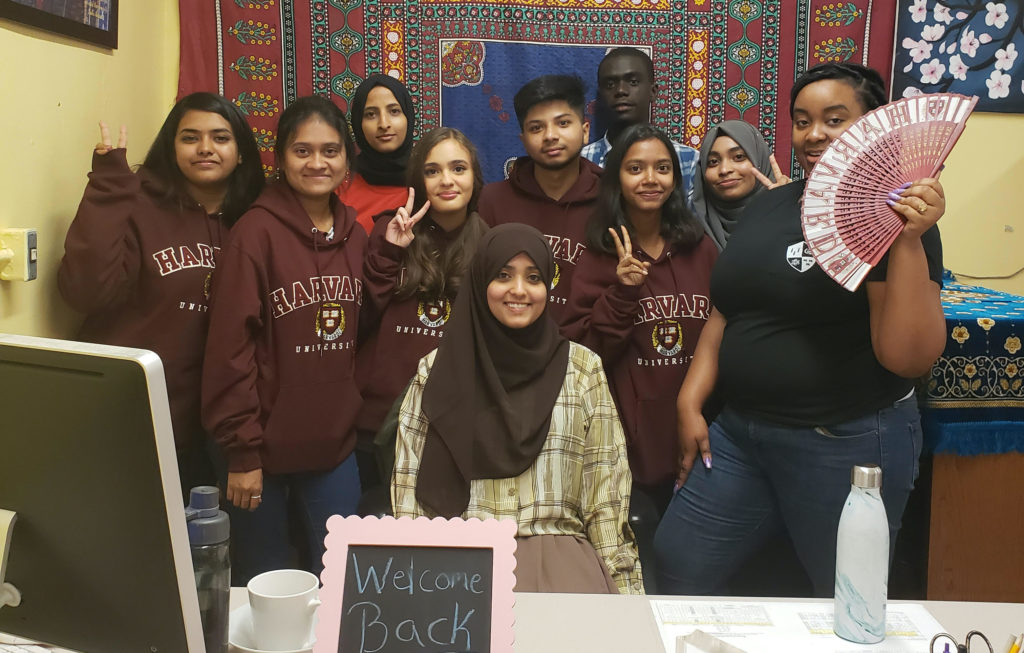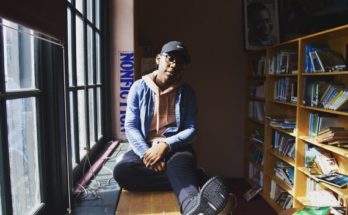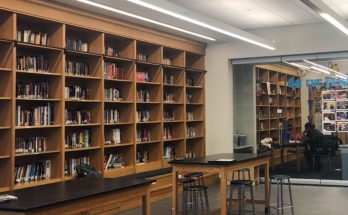
Photo Credit: Juanelvis Paulino
Orubba Almansouri took the podium at The City College of New York to deliver her address as the school’s 2016 salutatorian. Almansouri’s cobalt hijab draped elegantly under her graduation cap, which was decorated with a quote from the Prophet Mohammed: “A father gives his child nothing better than an education.”
For Yemeni-born Almansouri, the quote rang true. Five years earlier, she had spent her entire senior year at the Brooklyn International High School trying to convince her father to allow her to pursue college. After many, many heated debates, he acquiesced, bucking a tradition that destined generations of women from their family to what Almansouri calls the “university of kitchen.”
“Success,” Almansouri declared in her college graduation speech, “is knowing that as I advance in my academic, professional, and personal life, I do so with the community that I belong to.”
While that community certainly includes her blood family, it also includes the family Almansouri found at Brooklyn International, a member of the Internationals Network dedicated to serving recent immigrants. The school became a “second home” to Almansouri after she arrived in the United States in 2006.
It is no surprise, then, that in 2018, after being decorated with honors from City College, after earning a masters degree in Middle Eastern Studies from New York University, and after attracting the public admiration of former first lady Michelle Obama, Almansouri would choose to return to her high school community. This time around, though, she was on staff.
Almansouri is currently one of a dozen Brooklyn International alumni who have found second acts at their high school alma mater in positions ranging from paraprofessionals to classroom tutors to marketing coordinators.
Almansouri’s title is education coordinator. “What that means is that I do a lot,” she recently explained. “A little bit of everything.” During remote learning, Almansouri has been working with students and teachers to ensure the continuity of community building and social-emotional learning. Her Arabic Club, for example, has had virtual cooking sessions together, and student leaders she has been working with have coordinated virtual school activities and games.
On a normal school day, Almansouri can be found co-planning curriculum with teachers, co-teaching courses, coordinating after-school activities, playing Uno with students, or convincing parents to let their children attend summer college programs.
“My office is always packed,” Almansouri said. Students often tell her, “We wish we could clone you.”
Principal Kathleen Rucker has tried to do just that, orchestrating alumni homecomings and devising a plan for cultivating the school’s future staff from its current students. Thus far, though, funding insecurities have prevented this effort from being much more than a passion project that can be pursued when finances, student need, and alumni availability align.
To shore up more steady support, the school applied for up to $500,000 from Imagine NYC Schools last November to fund their alumni efforts. Imagine Schools is a city initiative funded in part by the XQ Institute. It is intended to support innovation in both new and existing schools, through respective “Imagine” and “Reimagine” grants. (To note: these are unrelated from the city’s new “Reimagine Education” initiative funded by the Bill & Melinda Gates Foundation) .
In December, Brooklyn International’s alumni-focused project was selected as one of 90 proposals to move to the next round of the funding competition. As a finalist, Brooklyn International had been invited to participate in a series of “design days,” during which they received personal coaching on their proposal. COVID-19 has altered the timeline, which is continuing to inch forward; Brooklyn International had a design day scheduled in mid-March that has been rescheduled, virtually, for mid-May. Originally, the grant awards were expected to be announced in May.
In their proposal and the accompanying video–which, of course, was produced by alumni and exclusively featured alumni voices–Rucker and the school’s grant design team present a case for why this initiative is vital to Brooklyn International’s ability to serve students.
The school’s six-year graduation rate has reached 86 percent, while English language learners citywide graduate at a rate of 35 percent. The school attributes this feat to the “web of support” it has spun around students with the help of alumni.
The most audacious elements of the new proposed project include bringing an alumni coach into every classroom, building out a suite of alumni social workers–the school has found that a significant number of its graduates pursue careers in social work, and developing a partnership with a teaching fellowship that would support alumni through a masters degree in education while they taught at the school. The pipe dream is to bring a graduate school of education on premises that could work with alumni-teachers in context.
Rucker, who joined the school as a science teacher in 2003 and became principal in 2014, can pinpoint the moment that sparked that idea to strategically leverage alumni to help current students. It was her first year as principal, and there was one student whom she was struggling to reach. She had tapped his friends and family in Brooklyn and Haiti for help. Over the course of these conversations, which didn’t move the needle much, Rucker realized how impactful it would be to provide cultural support, alongside the other supports she was already trying.
One day, during a spontaneous visit from an alum who happened to share a culture and language with the student, Rucker decided to introduce them. The two exchanged contact information and launched an informal mentorship relationship.
“You see these moments, and you’re like, ‘Oh my gosh, if we could magnify that,’” Rucker said.
Since that serendipitous pairing, Rucker has been intentional about prioritizing alumni for open positions and creating new alumni positions that are responsive to student needs.
Already, alumni are a constant presence in the school. They are invited back for the annual Thanksgiving Feast, “Alumnight,” and the occasional brunch. They are active on social media groups managed by the school. They lead one-off class lessons at teachers’ requests.
Before Almansouri was on staff, for example, 12th grade English teacher Shahzia Pirani-Mellstrom invited her in during a speech-writing unit to share the experience of delivering her salutatorian address.
This year, Brooklyn International is celebrating its 25th anniversary and had been planning a gala to celebrate, extending invites to all 25 graduating classes. The celebration is still on, if adjusted, to be a Zoom gala with virtual speeches and school trivia games.
One of the most significant roles alumni play is in helping students prepare for their portfolio presentations, which replace most Regents Examinations as graduation requirements at Brooklyn International, a member of the New York Performance Standards Consortium. While teachers from other International schools used to be recruited for portfolio preparation, they have been replaced by alumni. “We noticed the alumni gave better feedback than the teachers,” Pirani-Mellstrom said. “Because they had experienced it.”
Alumni have also been brought on as classroom mentors and tutors in response to immediate student needs. Luis Ruiz, a Guatemalan immigrant who graduated Brooklyn International in 2016, returned last December to work part-time at the school while he finishes his senior year at Hunter College. Originally tapped to work one-on-one with a freshman from the Dominican Republic, Ruiz quickly realized that he could expand his influence to more students if he used an electronic translator on an iPad to work with students who may speak French Creole or Filipino. Even if he doesn’t speak the same language as the students he is working with, their shared experience as immigrants is still significant.
The students agree. As a member of the school’s Reimagine design team, senior Aysha Hussain conducted lunchtime focus groups to gather student feedback about the growing alumni presence. Hussain, who immigrated from Bangladesh in 2015, reported that students value having adults in the building who have, quite literally, been in the same seat as them: “The alumni are like teachers but not like teachers. We can learn together.”
Rucker borrows a term from her days as a science teacher to describe alumni’s position as teacher-but-not-teacher; the alumni occupy an “interstitial space” in the school community, one that flows between students and teachers. Having shared experiences with students and having the ear of teachers, alumni can not only serve as translators of languages, but as translators of emotion and experience, cueing teachers in to what students are going through.
The school’s vision to grow their own teachers isn’t completely revolutionary. In 2018, Chalkbeat reported that already roughly one-third of new department of education hires were graduates of New York City public schools. At that time, Schools Chancellor Richard Carranza announced his effort to further diversify the teaching force by creating new pipelines for city students to become city teachers. Carranza even offered symbolic employment “contracts” to students committed to teaching.
Studies show that, in general, building a teaching force that is representative of student demographics yields positive results, ranging from lower suspension rates to higher student achievement.
However, Rucker is cautious to point out that “diversity is not a monolith.” Brooklyn International’s population hails from more than 30 countries and speaks more than 35 languages. The school’s push to bring alumni back, Rucker said, is about more than just broad strokes representation; it is about aligning specific student needs with specific alumni expertise.
“We see the power of our alumni. It is very, very evident,” Rucker said. “We just want to create structures where we can really meaningfully do that work and not have it just be a one-off conversation because someone happens to be visiting that day.”
And just as staff alumni use their position to help current students, their employment at Brooklyn International can eventually inform future work with immigrant communities within and beyond the school’s walls.
Almansouri, for one, said that her work with English language learners in her old high school has inspired her to apply to related doctoral programs. She recently found out that she was admitted to the Graduate Center of the City University of New York’s Urban Education program for the fall, and has decided to accept the offer.
Even so, she will be continuing her work with Brooklyn International: “There’s so much work that needs to be done to support future generations of immigrants.”



